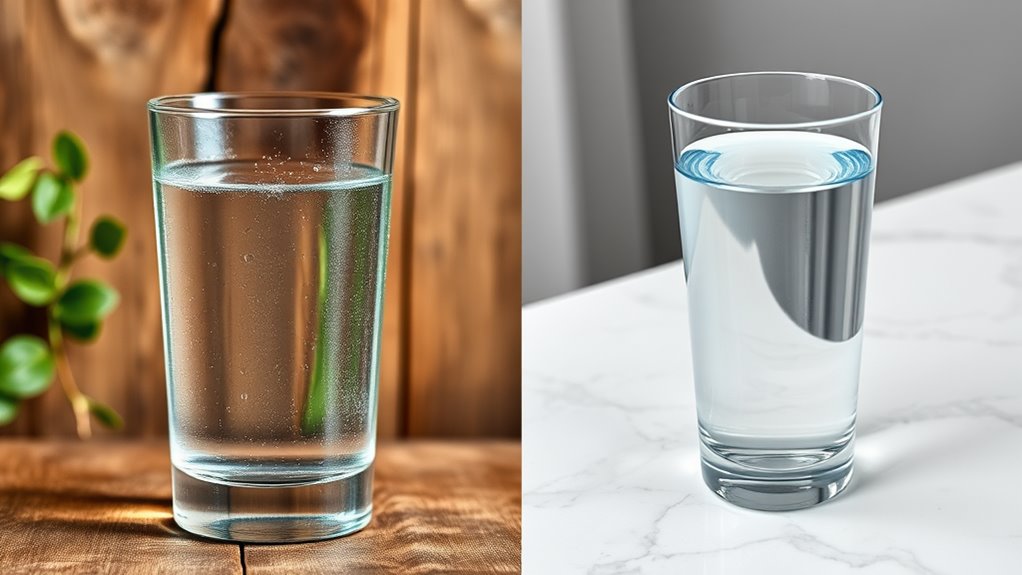
When comparing well water to city water, consider factors like source, maintenance, and cost. City water comes from rivers or reservoirs, while well water relies on underground aquifers. Maintenance for city water is handled by municipalities, but well owners must test their water annually. Well water might be cheaper in the long run despite high drilling costs. Taste and health considerations differ too, with city water often treated chemically. Explore these differences further for a thorough understanding.
When choosing between well water and city water, understanding the fundamental differences can greatly impact your daily life. City water is typically sourced from rivers, lakes, or reservoirs, providing a consistent supply, especially in urban areas. In contrast, well water comes from underground aquifers, making it more common in rural settings. Accessibility is a notable factor; city water is usually more readily available, while well water depends on individual property ownership and the feasibility of drilling.
Maintenance and testing also play essential roles in your decision. With city water, the municipality takes responsibility for maintenance, treatment, and regular testing, ensuring a level of reliability. However, with well water, you're on your own. You're responsible for yearly testing and maintenance, which can be a burden if you're not familiar with the process. Quality of well water can vary greatly based on location, making regular testing crucial for safety.
Contamination risks vary; city water can be affected by weather events, while well water faces threats from natural contaminants. Additionally, well pumps have a shorter lifespan, typically lasting between 8 to 15 years, whereas a well itself can function for 20 to 30 years with proper care.
Cost is another important consideration. City water users receive a monthly bill, averaging around $42, covering water and sewer services. In contrast, drilling a well can set you back between $5,300 and $9,200, not to mention ongoing expenses for testing and equipment upkeep. As city water bills continue to rise considerably, you might find that well water offers a more stable long-term financial option, despite its initial setup costs.
Chemical treatments are where you might notice a stark difference. City water is often treated with chlorine and fluoride, which can alter taste and health implications. Some people prefer the chemical-free option of well water, which benefits from natural filtration through rock and soil. However, be aware that city water can also contain disinfection by-products that may pose health risks. If you're sensitive to taste, well water might appeal to you more due to its lack of chemical additives.
Lastly, sustainability and independence are critical considerations. Well water provides a self-sufficient option, freeing you from municipal supply chains and potential disruptions. City water can be restricted during emergencies or droughts, while well systems, if maintained correctly, allow for a continuous supply. Natural filtration enhances the environmental impact of well water, reducing reliance on large-scale infrastructure.
Health considerations shouldn't be overlooked either. Well water can harbor natural contaminants like bacteria and viruses if not properly maintained, while city water undergoes regular monitoring by municipal authorities. Ultimately, the choice between well water and city water involves evaluating these differences in source, maintenance, costs, chemical treatments, sustainability, and health implications.
Conclusion
In the grand tapestry of water sources, well water and city water each weave their own intricate patterns. While well water offers a rustic charm and independence, city water provides the safety net of regulation and treatment. Choosing between them isn't just a matter of taste; it's about understanding your needs and priorities. So, whether you sip from a glass filled with the essence of the earth or the convenience of the municipality, you're making a decision that flows into your life.



